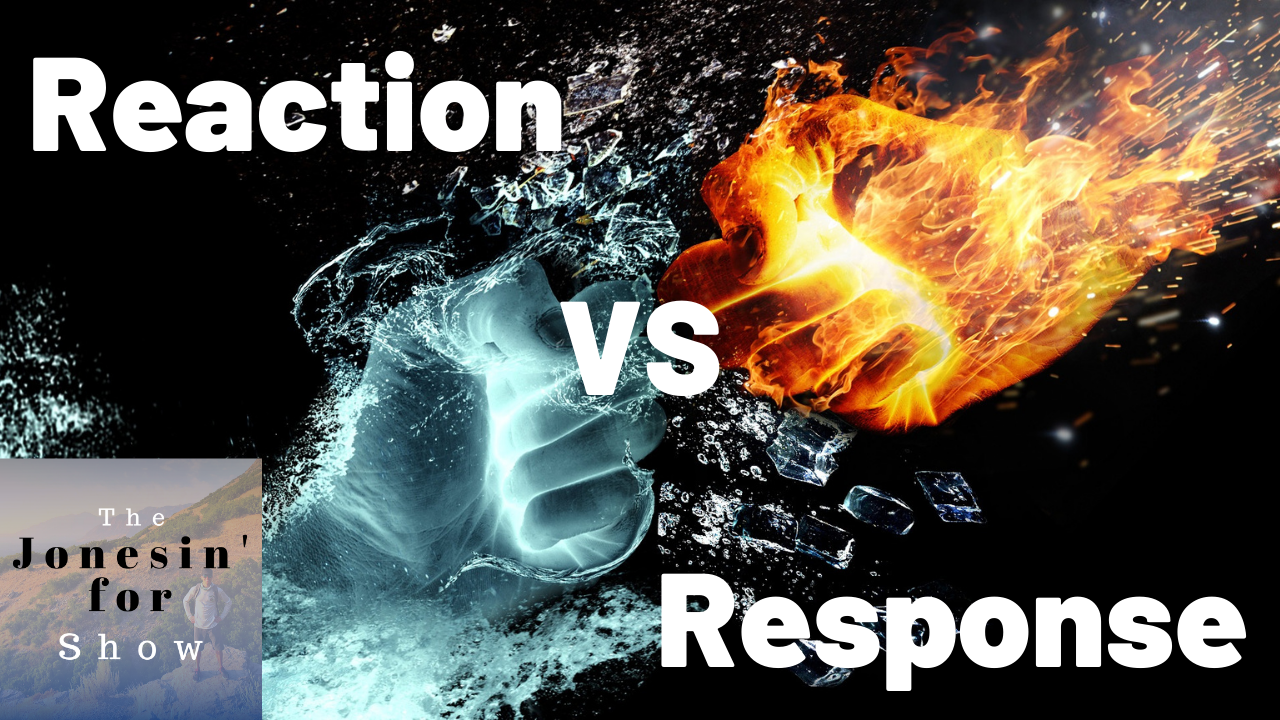Reaction VS Response

Reaction VS Response - Episode 81
When a situation happens, how do you deal with it? Do you respond or react? While they might seem like the same thing, and are at times, they can also be different. If you are ready to have people understand you more, be calmer in situations, and be happier in life, keep reading! Let’s learn how we can respond and react to situations in the best way possible!

Response and reaction are connected, but they are also very different. So let’s first settle on the distinction between the two. A reaction is something instinctive, you do it without thinking. A response is still a reaction but with intention behind it. There is thought that comes with a response. For an example, say someone is being mean to you, yelling at you, or blaming you for something. You notice that you are starting to feel upset, maybe you feel like you need to start yelling back to try to get your point across. That is a reaction. Look at reality TV, how many times to fights escalate because people are just reacting and not thinking about their responses or putting intentions behind what they are saying.
We all have reactions, and we all have responses, the goal is to be more responsive than reactive. There are three segments to all situations: a stimulus, a pause, and a response. A stimulus is something that triggers the reaction. If you just react outright to the stimulus the pause will be very short, and you will get an instinctive reaction to the stimulus rather than a response. If you wait for a moment to try to calm down and rationally think about your reaction to the stimulus, you can turn the instinctive reaction into a response by lengthening the pause. I’m not talking hours or days, although it could be at times. Even just a few seconds to think things over can help majorly. I have a few tips to help you during this pause so that you can choose the best response.

First and foremost, the encompassing idea is to be mindful. Be aware of your thoughts and feelings as well as other people’s thoughts and feelings. This can apply to anything, watching a movie, reading a book, talking to somebody, and so much more. Don’t judge these thoughts and feelings, just notice them. Then try to find the motivation behind your thoughts and emotions. If somebody is berating you and making you feel like less of a person, your emotions will probably be upset and sad. Be aware of those feelings and why you feel that way. To go back to the example, think about why this person is able to make you feel so down and like less of a person, why are you not confident enough in yourself to know that what they’re saying isn’t true? Maybe it’s because you didn’t get enough sleep last night and you don’t feel good, or maybe it’s buried deeper in your past that you’ve carried through your life. Again, don’t blame anyone or judge any of these things, just be aware that they are there.

Next maybe try to figure out the motivation for the other person to be acting that way. Often times if we get upset during the day, we carry that anger and let it out on somebody else, it’s not always necessarily something that they did wrong. You’ve probably had people do that to you before, maybe it’s happening again in this situation. Still, don’t judge that motivation whatever it may be, just be aware of it.
The third tip is to try to be empathetic. This may not apply as much if you aren’t talking to somebody else. Try to walk a mile in the other person’s shoes. What are they going through? Maybe they’re just really struggling and they’re taking it out on you. Be understanding and caring. Don’t let that negative energy latch on to you.
.png)
Finally you get to choose how to respond. How are you going to react to the stimulus? Put thought and intention behind your response, it can make all the difference. Then lastly follow through by taking that action. Respond to the stimulus with all of the thought you’ve put into it. This takes time. While a few seconds is great, it can even be days depending on the situation. The more you do it the easier and faster it gets because you will start to see many similar motivations behind your emotions and people’s actions. Don’t just react and give a split second instinctive answers. Take some time to be mindful and go through these steps so that you can respond in a way that helps you and the other person.
I would love to hear what you think about Responses Vs. Reactions! Please send me a message on social media @Jonesinfor or email me at spencer@spencermjones.com.
.png)